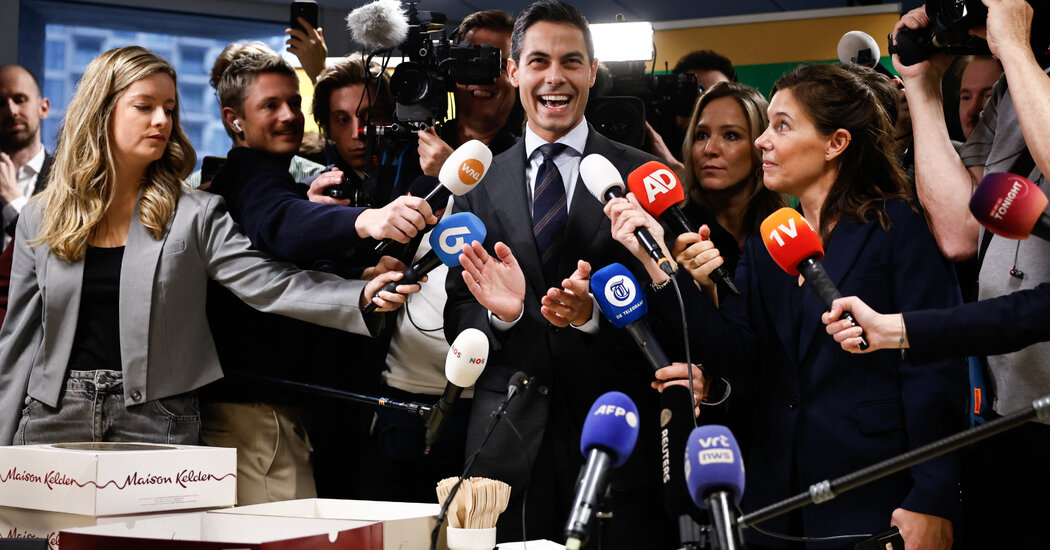By a narrow margin, the center-left party Democrats 66 won the most votes in last week’s elections in the Netherlands, edging out the far-right party of Geert Wilders after mail-in ballots from abroad were counted on Monday, according to the Dutch newswire ANP.
D66 and Mr. Wilders’s Party for Freedom were each expected to have 26 of the 150 seats in the House of Representatives, but the small popular vote margin — a fraction of one percentage point — means that D66 will have the first opportunity to form a government.
The election was the biggest victory in the nearly six-decade history of D66, an increase of 17 seats from the most recent election, in 2023. Mr. Wilders’s party dropped from 37 seats in the last election, when it emerged as the largest party for the first time.
As of Monday night, after all the mail-in ballots were reported, the difference between the two parties was nearly 28,500 votes, out of more than 10 million cast. The Dutch electoral council will officially confirm the results on Friday.
Rob Jetten, the 38-year-old leader of D66, will try to form a coalition with other parties, a process that can take months. To reach a majority of 76 seats, his party will have to find a way to work with at least three other parties.
He told reporters last week that there was no reason to wait for official confirmation of the results to begin those negotiations, adding that he felt a “big responsibility” to form a “stable and ambitious” government as soon as possible.
Mr. Jetten, as well as the leaders of other major parties, had said before the elections that they would not form a coalition that included the Party for Freedom, placing Mr. Wilders back into the position of being the biggest opposition leader in the House.
The outcome of last Wednesday’s elections was a win for the political center and a defeat for Mr. Wilders, who had forced the vote after pulling his party from the governing coalition this summer. But far-right parties as a whole won about as many seats as they did in 2023, signaling that the movement remains strong.
And factions to the left of D66 lost ground. The largest, an alliance of the Green and Labor parties, slipped to 20 seats from 25 in the last election.
Usually, the mail-in ballots from Dutch voters living abroad are not met with major anticipation. But this time they were potentially significant because of the small difference in votes between the top two parties. In the end, they did not change the balance just after the election that showed D66 slightly ahead.
Most of the 87,000 or so mail-in ballots from abroad went to the Green-Labor alliance, ANP reported, just as they did in the last election.
Claire Moses is a Times reporter in London, focused on coverage of breaking and trending news.
The post Mail-In Ballots Solidify Narrow Win for Dutch Centrist Party appeared first on New York Times.




